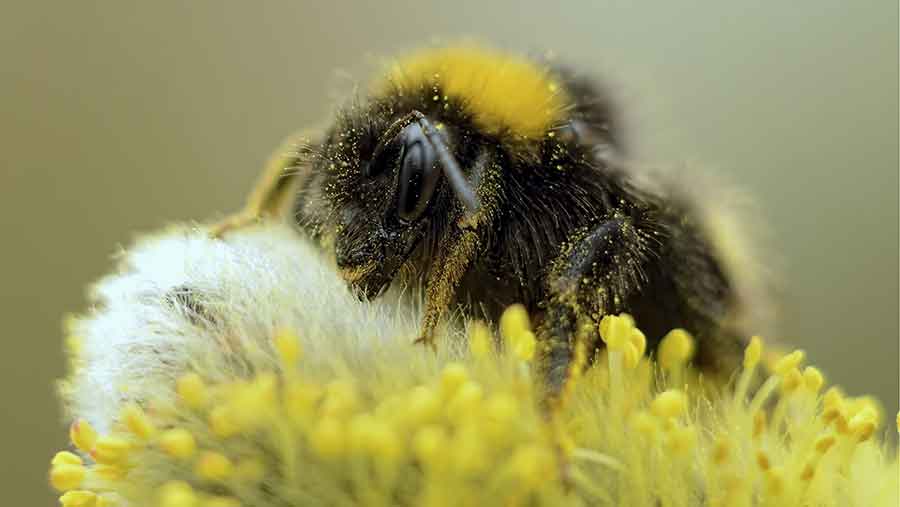Neonic pesticide linked to decline of bumblebee queens
 © WestEnd61/Rex/Shutterstock
© WestEnd61/Rex/Shutterstock Farmers who use a common neonicotinoid pesticide on spring crops could be disturbing the life cycle of wild bumblebees, a new study suggests.
Researchers studied the impact of the neonicotinoid thiamethoxam on the feeding behaviour and ovary development of four species of queen bee.
The team, from the from Royal Holloway University of London, found that the pesticide reduces egg development in all four species.
See also: ‘Million hectares’ at risk from neonicotinoid ban extension
One explanation for the reduction could be that thiamethoxam impacts queens’ pollen consumption, and pollen contains essential nutrients for ovary development and brood production, said the researchers.
Thiamethoxam, manufactured by Syngenta, is one of three neonicotinoids currently subject to restrictions for use on flowering crops in the EU, including oilseed rape.
EU politicians are currently weighing the benefits of neonicotinoid crops to protect crops against their effect on pollinators and insects. In 2015 in the UK, 368,713ha of land were treated with thiamethoxam.
Field-relevant exposure
The study, published in the journal Proceedings of the Royal Society B, investigated the impact of exposure on queen bees to field-realistic levels of the pesticide.
In total, 506 queens were collected from the Crown Estate at Windsor Great Park in Surrey between March and April 2014.
Two out of the four species under observation were found to eat less artificial nectar when exposed to thiamethoxam in the laboratory.
“We consistently found that neonicotinoid exposure, at levels mimicking exposure that queens could experience in agricultural landscapes, resulted in reduced ovary development in queens of all four species we tested,” said lead researcher Dr Gemma Baron.
“These impacts are likely to reduce the success of bumblebee queens in the spring, with knock-on effects for bee populations later in the year.”
Future studies
Commenting on the study, Syngenta scientist Dr Peter Campbell said: “This is a worst-case laboratory forced feeding study, which had methodological issues that could have confounded the reported effects that were attributed to thiamethoxam.
“In addition, lack of any reported effects on egg laying, survival and waxing behaviour bring into question the ecological relevance of the reported effects to bumblebee colonies under field realistic conditions of use.”
The study was funded by the Biotechnology and Biological Sciences Research Council (BBSRC), Defra, the Natural Environment Research Council (Nerc), Scottish government and the Wellcome Trust.

